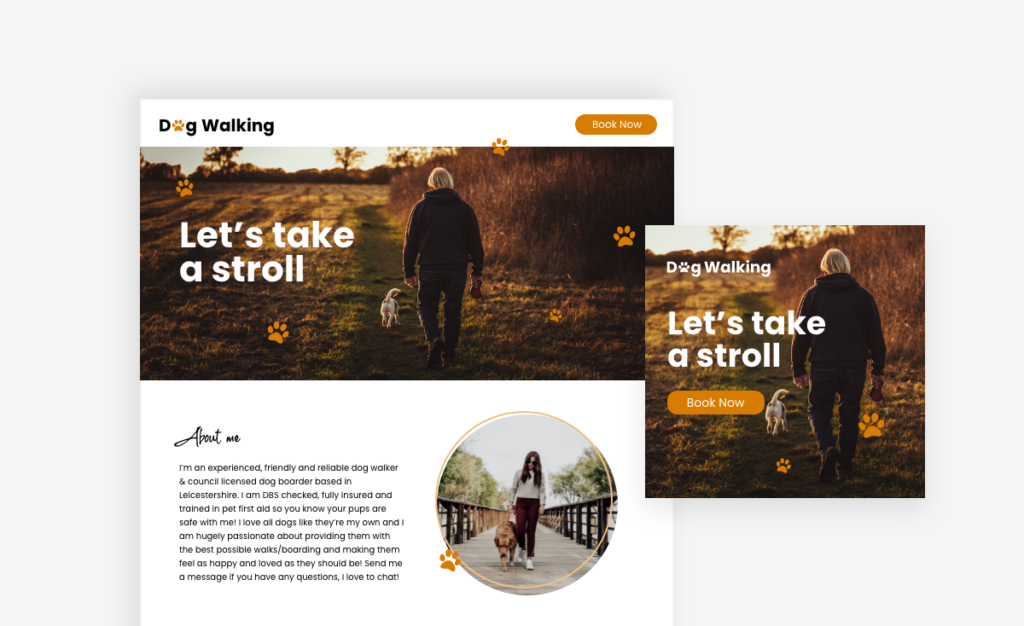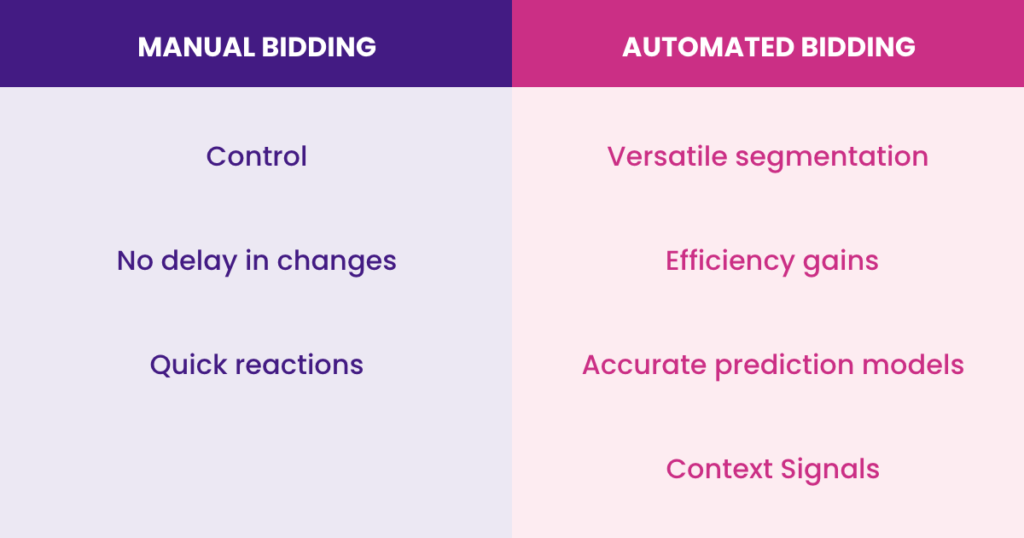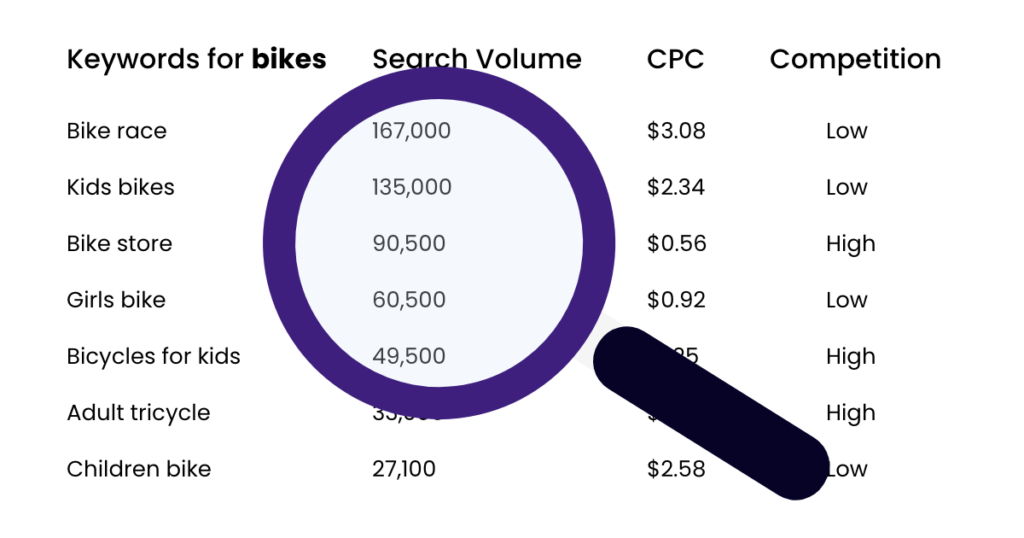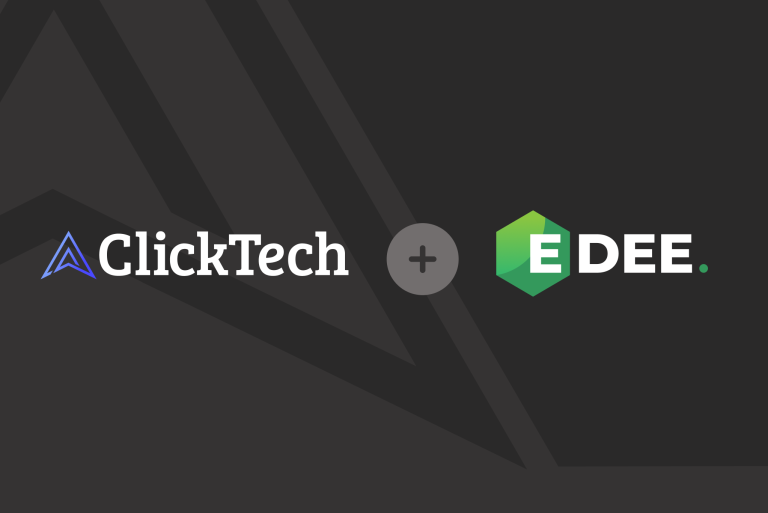Pay-per-click (PPC) advertising is an essential element of a comprehensive marketing strategy because it can drive immediate results.
You can achieve a range of different goals with PPC, and some of the most common reasons to use this marketing channel includes:
- Improving visibility
- Identifying new leads
- Increasing site traffic
- Boosting conversions
While PPC can be simple to execute, it does take some planning and preparation. That’s why we’re sharing our top tips on how to put together a successful PPC campaign strategy.
Start by Optimising Your Website
Ensure Your Landing Page Aligns With Your Ad
When targeting large amounts of keywords, creating unique optimised landing pages for your ads can be a challenge. However, directing visitors to generic product or landing pages is really wasted ad spend. Not only are site visitors less likely to convert, but their on-site behaviour can also lead to lower Quality Scores, making reaching them through PPC even more challenging.
Make sure your PPC ads draw a strong link between audience targeting and landing page optimisation. The more relevant a landing page is to the initial search intent or audience demographic interest, the more likely site visitors will click through, sign up, make a purchase, etc.
For instance, if you were running a PPC ad with a two-for-one offer at your restaurant, then the landing page for the ad should have more detail about the promotion or something else that relates specifically to the ad content.

Optimise Your Landing Page
Landing page optimisation for PPC is the process of creating well-designed pages for PPC visitors and optimising each element on the page in order to maximise the percentage of visitors that complete your desired goal. The ultimate goal of PPC landing page optimisation is to build pages that better engage your target audience, so you can drive more leads through paid search.
In a nutshell, landing page optimisation leads to more conversions, which raises the ROI of your PPC marketing campaigns. Here are a few ways you can maximise your landing page so that customers will be more likely to convert:
- Use clear and compelling calls to action
- Use a clean design and layout
- Write compelling and attention-grabbing headlines
- Write copy that’s clear and straightforward
- Use video and images strategically to retain attention
- Make information easy to digest by using bullets, stand-out quotations and visuals
Select a Bidding Strategy
There are several different bidding strategies to choose from, and picking the right one will depend on a variety of factors, including: your budget, your experience with PPC and your goals.
Manual Bidding
One of the first choices you’ll have to make is between manual and automated bidding. If you’ve never done PPC before, you might want to start with manual bidding, especially if you’re working with a low budget. That’s because manual bidding allows you to set a cap on your cost per click. The trade-off with manual bidding is that you don’t have an opportunity to optimise your bids.
Automated Bidding
On the other end of the spectrum is automated bidding. This strategy will reduce the amount of time you’ll need to put into managing the PPC campaign, but you might end up paying a little more. There are several different bidding strategies when it comes to automated bidding. Essentially, there are various strategies you can choose depending on whether your goal is to increase conversions, visibility, or traffic.

Set Your Budget
Budget is an important aspect of a PPC campaign. But the best part about this type of advertising is that you can still do it on a limited budget, and you can retain close control over how much you spend.
In fact, if you’re new to PPC, don’t have a lot of money to throw around, and just want to test the waters, you can still get started with a small investment.

Research Your Keywords and Choose Them Wisely
Keyword research is arguably one of the most important aspects of a PPC campaign because it’s the backbone of the entire process. Without keywords, there would be no way for the search engine to know when to display your ads.
Just as importantly, choosing the right keywords can virtually guarantee the success of your campaign, and promise you the most views, the most click-throughs, the most traffic, and the most conversions. Here are a few tips for selecting keywords:
- Take a look at what keywords your competition is using
- Think about what you’d search if you were a customer looking for your products or services
- Use Google’s keyword search or some other tool to identify keyword opportunities
- Be specific with your keywords rather than generic or vague
- Choose local keywords when possible
The better you are at choosing keywords, the more hits you’ll get. Beyond that, however, you’ll also be rewarded with a higher quality score and a lower cost per click as a result.
Another important element of keyword selection is negative keywords because these will filter out keywords that you want to exclude. For instance, say you want to advertise ice cream but don’t sell soft serve, then you’d use soft serve as a negative keyword to exclude searches looking for that type of product.

Create a Winning Ad
Once you’ve got your landing page ready, decided on a budget and bidding structure, and carefully chosen your keywords, you can finally get cracking on your actual ad. One of the key things to remember is to keep your short and to the point. Afterall, you don’t have a lot of time to catch the attention of prospects.
Another important thing is to have a goal in mind and to write the copy based on that goal. For instance, if you want to increase sales for Mother’s Day, your ad copy should reflect that. You don’t have to be overly creative, but you do have to grab your audience’s attention, hold their interest, and pique their curiosity.
To help grab that attention, consider coming up with a unique value proposition that makes your offer different from competitors and describe in one sentence how that will benefit customers.
Don’t Forget the Call to Action
Without a call to action (CTA), there’s no point running a PPC ad. Ahe CTA tells interested prospects what they’re supposed to do next. You can keep the CTA short and sweet, but it must be clear, concise, and compelling, such as “buy now.”

Test Your Ads to Ensure Performance
Once your ads are up and running, your work still isn’t done. In fact, this is when the real work begins, and that includes tracking your ads, measuring performance, and making changes as necessary to improve results.
A great way to measure performance is with A/B testing because it enables you to run two near-identical versions of the same ad at the same time, with one key difference. You can modify just about any element of the ad you like, including the copy, CTA, keyword, or even the landing page itself. Once you know which version performs better, make the necessary changes and stop wasting money on the less-effective ad.
Key Takeaway
PPC isn’t overly difficult, but it does require some knowledge of how the process works and a great deal of planning and research if you want to get the best ROI from your efforts.
All of the above tips will need to be addressed as part of your strategy so that you can give your PPC campaigns the best possible start.
It’s important to remember that every account is unique, and will have its own reactions to different features and strategies. Of course common practices exist because they’re considered to work the best for most accounts, but you’ll never know until you test.
For help growing your business, discover Adzooma’s platform. Or discover CTI’s expert PPC services.




